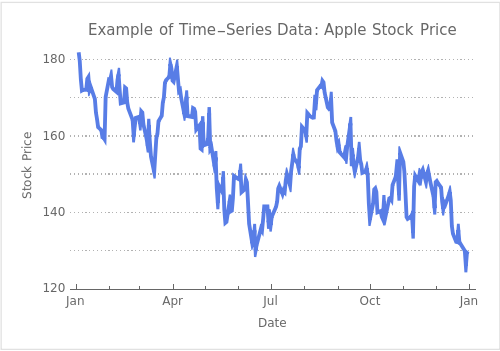In today's data-driven world, one term you might have encountered is "time-series data". But what does it mean, and why should you care about it as a business leader? Let's break it down in simple terms.
What is Time-Series Data?
Imagine you're taking a road trip. You check your watch every hour and note down the distance you've covered. At the end of the trip, you have a list of distances covered at different times. This is a basic example of time-series data - data points collected over time.
In a business context, time-series data could be anything from daily sales figures to monthly website traffic or yearly revenue. It's like a digital history book, telling the story of your business over time.
Why is Time-Series Data Important?
Time-series data is like a gold mine of insights. It allows you to look back and see how your business has performed. But more importantly, it helps you look forward and make predictions.
For example, you can identify trends and patterns by analyzing your sales data from the past few years. You might notice that sales always dip in February or spike in November. With this knowledge, you can plan your marketing efforts more effectively.
Real-World Applications of Time-Series Data
Time-series data is everywhere in the business world. Here are a few examples:
-
Finance: In the stock market, time-series data allows us to track the ups and downs of stock prices over time. This helps investors make informed decisions.
-
Healthcare: Hospitals use time-series data to track patient admissions and discharges. This helps them manage resources and plan for future needs.
-
Retail: Retail businesses use time-series data to track sales and inventory levels. This helps them manage stock and plan for peak shopping periods.
-
Website Analytics: Website owners use time-series data to track visitor numbers and behavior. This helps them improve the user experience and increase conversions.
Time-Series Data: A Powerful Tool for Business
In conclusion, time-series data is a powerful tool to help you better understand your business and make informed decisions. By tracking changes over time, you can identify trends, spot opportunities, and plan for the future.
So, whether you're a small business owner or a top executive at a large corporation, it's worth taking the time to understand and leverage time-series data. It could be the key to your business's future success. If this all sounds "Greek" to you, we can help. Contact us to make you an introduction to how we can use these methods to benefit your business.





